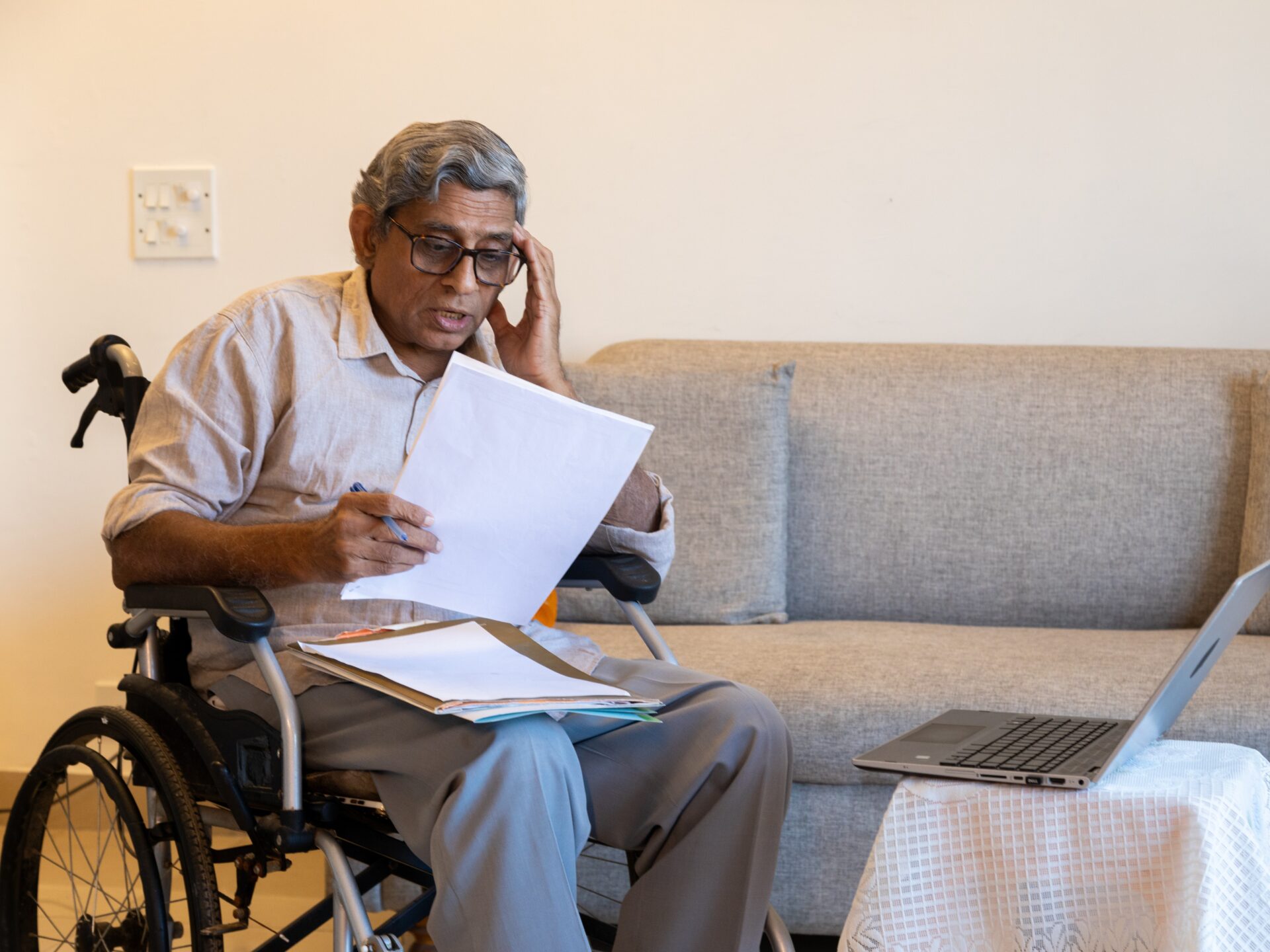Centre for Ageing Better has launched a report calling for new policy and practice to support disabled people and those with long-term health conditions in their 50s and 60s to find and stay in work.
Research from the Supporting Disabled Older Workers Project found disabled older workers were almost twice as likely to face negative treatment when applying for jobs or promotions compared to their non-disabled peers.
44% of disabled people aged 50 to 66 said they had experienced negative treatment, compared to 25% of non-disabled people.
69% of UK adults aged 50 to 66 felt older age was a disadvantage in the job market, and 75% said having a disability or health condition put applicants at a disadvantage.
Only 6% thought a disability or health condition was an advantage, and only 11% thought being over 50 was an advantage.
The project, funded by Columbia Threadneedle Foundation and shaped by a nine-person Experts by Experience Steering Group of disabled older people, highlighted barriers workers faced.
These included being forced into retirement due to lack of reasonable adjustments, rejection at interviews because of health conditions, workplace cultures hostile to adjustment requests, feeling forced into lower-paid roles, and staying in the same job due to worries about whether a new employer would be accommodating.
The report recommended the Government and employers involve disabled older workers in shaping policies, support them in communicating workplace needs with initiatives like adjustment passports, and reform Jobcentre Plus and the National Careers Service with more specialist training.
It also called for more research into reducing burdens on ‘sandwich generations’ through childcare and social care reforms.
John Holme, Experts by Experience Steering Group member, said: “I hope the report will help show employers that older and Disabled people can still offer real value in the workplace, especially when we are given the right support.”
Rebecca Lines, project and change manager for work at the Centre for Ageing Better, said: “The UK labour market is failing Disabled older people.
“Among 50 to 64-year-olds, the employment gap rate between Disabled and non-Disabled people is more than 30 percentage points.
“Our new research highlights how age and disability discrimination often overlap, creating deeper disadvantages for these workers and making it harder to stay in jobs or find new opportunities.”
Lines added: “Disabled older workers told our researchers how they are navigating a constant minefield, weighing up whether to declare health conditions, how to ask for adjustments and how to present themselves in a labour market that often overlooks them or undervalues them.
“This takes a toll on confidence, wellbeing and long-term health, likely exacerbating the disadvantages they face.
“What is clear from this project is that employers and government cannot tackle the barriers facing Disabled older workers without working directly with them.”
She said: “This project has shown just how vital it is to listen to the voices of Disabled older workers to understand the challenges in a way that is impossible without lived experience.”
Survey results showed disabled older workers were less satisfied at work compared to non-disabled people aged 50 to 66.
30% were satisfied with pay and progression (compared to 40%), 39% with training and development (compared to 51%), 51% with roles and responsibilities (compared to 62%), and 43% with line managers (compared to 55%).
39% of disabled people aged 50 to 66 did not feel their workplace was inclusive compared to 23% of non-disabled people.
Concerns about stigma and being perceived as less capable meant many disabled older workers did not ask for reasonable adjustments.
Some did not believe employers would be able or willing to provide adjustments, due to physical limitations or overstretched teams.
21% of disabled workers aged 50-66 had not asked for needed adjustments during the past five years.
30% of disabled people lacked confidence in asking for adjustments, compared to 20% of non-disabled people.
Elaine Smith, deputy director for work at the Centre for Ageing Better, said: “Some participants in the research have found rewarding work with understanding and supportive employers.
“But other participants described a life dominated by the dual responsibilities of managing work and their health condition, leaving little room for joy outside work and resulting in a loss of social life.
“Flexibility is key and without it, Disabled older workers can struggle, finding it more difficult to manage their health or meet caring responsibilities.”
Smith added: “We know that there are employers out there who are the flexible and supportive organisations that allow Disabled older workers to thrive.
“We need more employers to see the opportunities here and to understand better what is standing in their way and stopping them from offering the culture and policies that would create the right working environment for Disabled older workers.”
Suzanne Hall, project lead on the research and director of engagement at the Policy Institute at King’s College London, said: “The intersection of age and disability can create barriers which keep people with so much to offer out of the workplace.
“Our research participants spoke about how hard it is to access the adjustments they are entitled to – that is, if they have the confidence to declare their disability in the first place.
“Yet, small changes could make a huge difference helping older Disabled people stay in work for longer, find new opportunities, and strengthen both their wellbeing and financial security – while also boosting the economy.”
Hall added: “But as this research shows, making these changes requires more than just listening.
“We must meaningfully involve Disabled older people at every step of the way.
“Only by genuinely co-designing new ways of working with Disabled older people will we be able to make a positive difference – and in a way that benefits us all.”

















